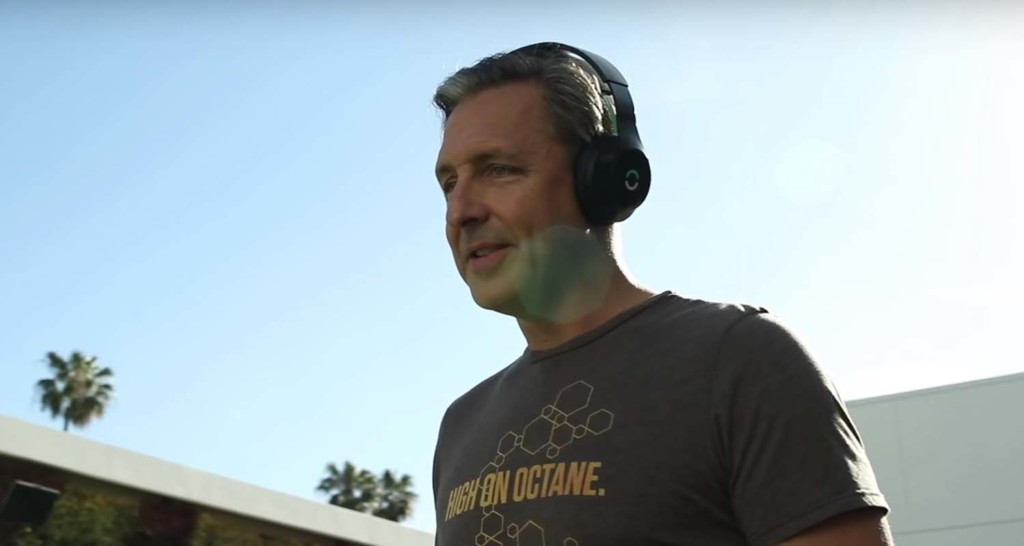
[tldr]
- Asperger’s syndrome is a form of high-functioning autism that makes social interactions hard because you have difficulty picking up on social cues.
- Generally, people with Asperger’s do not have a lot of the developmental delays or early signs that people with autism have.
- To get where I am today took huge amounts of work: neurofeedback, massive detoxing, learning about what’s going on in my body, and making gradual changes, on top of re-learning the social stuff that you learn in the first few years of life.
- Read on to find out what Asperger’s is, how to find out if you or your kids have it, and what to do about it.
[/tldr]
I was in my early 20s when Wired magazine brought Asperger’s out of the closet. I read about things like difficulty with faces and names, inability to make eye contact, missing social cues, and I thought, this is me, flat out. A lot of people have a hard time believing that unless they knew me then.
They published their initial diagnostic survey. Around 80% of people who score a 32 or higher out of 50 get diagnosed with autism or a related disorder. My grandmother, who was a nuclear engineer, all of her siblings, my father, a handful of other relatives and I all scored in the high 40s.
After a ton of research and trial and error, I learned that some of the foods I was eating was causing inflammation of my brain. So, I cut them out, and my personality shifted dramatically. My ability to pick up on social cues went up just by eliminating gluten, cutting carbs, and focusing on nutrient-dense foods.
Research is catching on. Studies show developmental improvement in some children whose parents elminated gluten and casein (a milk protein) from their diets,[ref url=”https://www.tandfonline.com/doi/abs/10.1179/147683010X12611460763922″][ref url=”https://www.tandfonline.com/doi/abs/10.1179/1476830512Y.0000000003″][ref url=”https://www.frontiersin.org/articles/10.3389/fnhum.2012.00344/full”] and doctors frequently prescribe the diet.
To get where I am today took huge amounts of work: neurofeedback, massive detoxing, learning about what’s going on in my body, and making gradual changes, on top of re-learning the social stuff that you learn in the first few years of life.
It takes effort, but it can be done. Read on to find out what Asperger’s is, how to find out if you or your kids have it, and how you can reduce or eliminate symptoms.
What is Asperger’s syndrome
Asperger’s syndrome is a form of high-functioning autism that makes social interactions hard because you have difficulty picking up on social cues. There’s some overlap with attention disorders like ADD and ADHD, and obsessive-compulsive disorders, but the hallmark is social communication trouble.
Generally, everything besides the social stuff works. It’s a common scenario that a person will go through their whole childhood just thinking they had some social awkwardness. Then, as an adult, you find out that it was because of Asperger’s the whole time. Or, you might not ever put a label on it. It makes interactions difficult at times, but most people get on just fine with it.
Symptoms of Asperger’s include:
- Limited interests and activities
- Repetitive behaviors
- Difficulty understanding nonverbal language (eye contact, facial expressions)
- Reduced or lack of empathy
- Monotone speech
Generally, people with Asperger’s do not have a lot of the developmental delays or early signs that people with autism have. Unlike the more handicapping forms of autism, speech and cognitive development is usually on track for age, there are no cognitive developmental delays, and children are curious about their environment.
That’s what outsiders see. On a Bulletproof Radio podcast episode,(iTunes) world-renowned psychologist Anat Baniel explains the experience of autism as putting on a snorkel and jumping inside a blender. Your environment is spinning and you can no longer tell the difference between the berry and the yogurt. Your brain’s job is to make sense of all of the information around you, and autism is what happens when it’s overloaded and cannot make sense of all of the stimuli.
How is Asperger’s syndrome diagnosed?
You may have heard that Asperger’s syndrome isn’t a thing anymore. That’s not entirely true.
Doctors and therapists use the “Diagnostic and Statistical Manual of Mental Disorders,”[ref url=”https://www.psychiatry.org/psychiatrists/practice/dsm”] to classify mental health problems. The most recent edition, the DSM-5, removed the Asperger’s label and instead calls the same set of symptoms “Social Communication Disorder,” which falls under the umbrella of autism spectrum disorders. Or, the doc might write “high-functioning autism” in your chart.
So, to get yourself or your kids tested for social communication disorder, Asperger’s, nonspecific high-functioning autism, whatever you want to call it, you’ll first visit your general practitioner. She’ll do an initial assessment, and if appropriate, she’ll refer you to a mental health specialist for more detailed testing.
Your mental health team will assess communication and interaction. Your assessor may ask you to rate yourself on a number of items. Or someone who knows you or your child well may do the rating. There are a handful of formalized tests they can use, but they all evaluate for the same things:
- Use of speech and language such as articulation and sentence structure
- Non-literal language like idioms and irony
- Nonverbal communication including gestures and eye contact
- Prosody: whether speech is sing-songy or flat in stress, volume, pitch, etc.
- Adherence to social conventions of conversation, like when to speak
- Content and flow of conversation
- Interests and how you choose to spend your time
- Family relationships
- Self-awareness
- Reactions in new situations
- Presence of aggression, tantrums
- Other mental health issues, including obsessions, compulsions, anxiety and depression
- The medical team will consider your history that you report, or as people who know you well tell it. They’ll also factor in their own interactions with you.
If you have your suspicions, you can take this test and use the results to start a conversation with your doctor about autism. No matter how it turns out, give the doc a ring if you have any concerns.
What caused my Asperger’s, and how I fixed it
Inflammatory conditions have more than one trigger, and no one factor is going to cause your problems or completely eradicate symptoms. For me, it was eating inflammatory foods, living in a moldy house, and exposure to mercury that all together put me in the sensory blender.
Fixing my Asperger’s took a ton of work and it didn’t happen overnight. Here are the highest-impact things I did.
- Diet changes. I noticed major improvement after eliminating gluten and adopting a cyclical ketogenic diet. I increased my vegetable intake and started feeding my body on a cellular level. All of this reduced inflammation and gave my brain the healing it needed to start sorting information a lot better. If I ate crap for a month, I’d still be better today than I was because of my healing over the years, but I’d notice a dip in my ability to pick up on subtle social cues.
- Neurofeedback. Neurofeedback teaches you to regulate your own brain function, which can train you to quickly get into a stable state when you’re feeling overwhelmed. You can practice neurofeedback training with at-home devices like the Muse headband or at extended retreats like 40 Years of Zen.
- Massive detoxing. I had a lot of toxicity from my environment, but the main things I cleaned out of my system were mercury and mold toxins. Here’s how to get started. Quick note: some people will say that mercury causes autism, but I disagree. Inflammatory conditions have more than one trigger, and most of the time it’s a compound effect from a lot of factors. Several studies link inflammatory markers with autism.[ref url=”https://www.pedneur.com/article/S0887-8994(05)00228-6/abstract”][ref url=”https://www.nature.com/articles/tp201261″]
- Brain stimulation. Devices like the Halo Sport and infrared light on the brain stimulate it to make myelin, which improves communication between brain cells. Strong myelin improves overall brain cell functioning and strengthens your brain’s ability to filter sensory input. You can get customized recommendations at Bulletproof Labs in Santa Monica.
- Observation. Every Thursday for two years, I went to business-networking meetings and people-watched. I had to re-learn social behaviors that you learn in your first few years of life.
Another thing that I’ll continue to do as long as I’m alive is use different technologies to figure out what’s going on in my body, and make appropriate tweaks. The less your body is dealing with, the less inflammation you have, and the more your brain can filter out all the noise and help you focus and communicate better.
It’s impossible to do all of these things at once. You’ll get overwhelmed, and since people with Asperger’s feel overwhelmed to begin with, you’ll quit. Start with your diet and lifestyle, and go from there, adding additional steps as they make sense. No two people are alike, and you have to figure out what works for you.











